Sustainability in an HCI Research Lab
- sebastianprost
- Jun 17, 2022
- 2 min read
We used an early version of the sustainability reflection cards in 1:1 interviews with members of an HCI reserach lab in Europe (anonymous). The purpose of the interviews were for our participants to reflect on past and current HCI projects they have been involved in. Interviews were conducted in person and we used the paper cards to facilitate the conversation.
In the first half of the interview, we asked questions about how they understand of the term “sustainability” and how it relates to their work. We also asked about insights they had in relatin to the the long-term impacts of their projects, any sustained use of technical systems developed as part of reserach projects, and the continuity of relationships with non-academic collaborators and participants.
In the second half, we used 28 sustainability cards (domains included ecology, economics, politics, and culture) in a card sorting exercise. Each participant went through the entire deck of cards, read out the question, and sorted the cards. How they sorted the cards evolved from interview to interview, as this was the first time we used the cards in this way.
Interview 1: Place each card on one of three stacks:
relevant for us
irrelevant
unclear
Interview 2: Place each card on one of four stacks:
relevant and we do it
relevant and we don't do it
irrelevant
unclear
Interview 3: Place each card in one of four quadrants:
The top two quadrant are a spectrum from "we do it" (left) to "we don't do it" (right)
Bottom left: irrelevant
Bottom right: unclear
Interview 4: Place each card on a large piece of paper along two intersecting axes:
Vertical axis: From "not important at all" (bottom) to "highly important" (top)
Horizontal axis: From "we do well" (left) to "we could do better" (centre) to "beyond our scope" (right)
Interview 5: Place each card either on a large piece of paper along two intersecting axes or on a side stack
Vertical axis: from "less important" (bottom) to "more important" (top)
Horizontal axis: from "we do well" (left) to "we suck" (right)
The side stack had two categories: "beyond our scope" and "unclear"
Below you can see the card sorting results for each interview. As the colour coded cards show (green = ecology; orange = economics; black = politics; red = culture) this research lab focusses particularly on economic, political, cultural questions of sustainability. Is is reflected in the research agenda on supporting highly political grassroots movements on the ground with digital tools and infrastructures. Ecological questions of sustainability are for these researchers less important, as the other questions take priority.
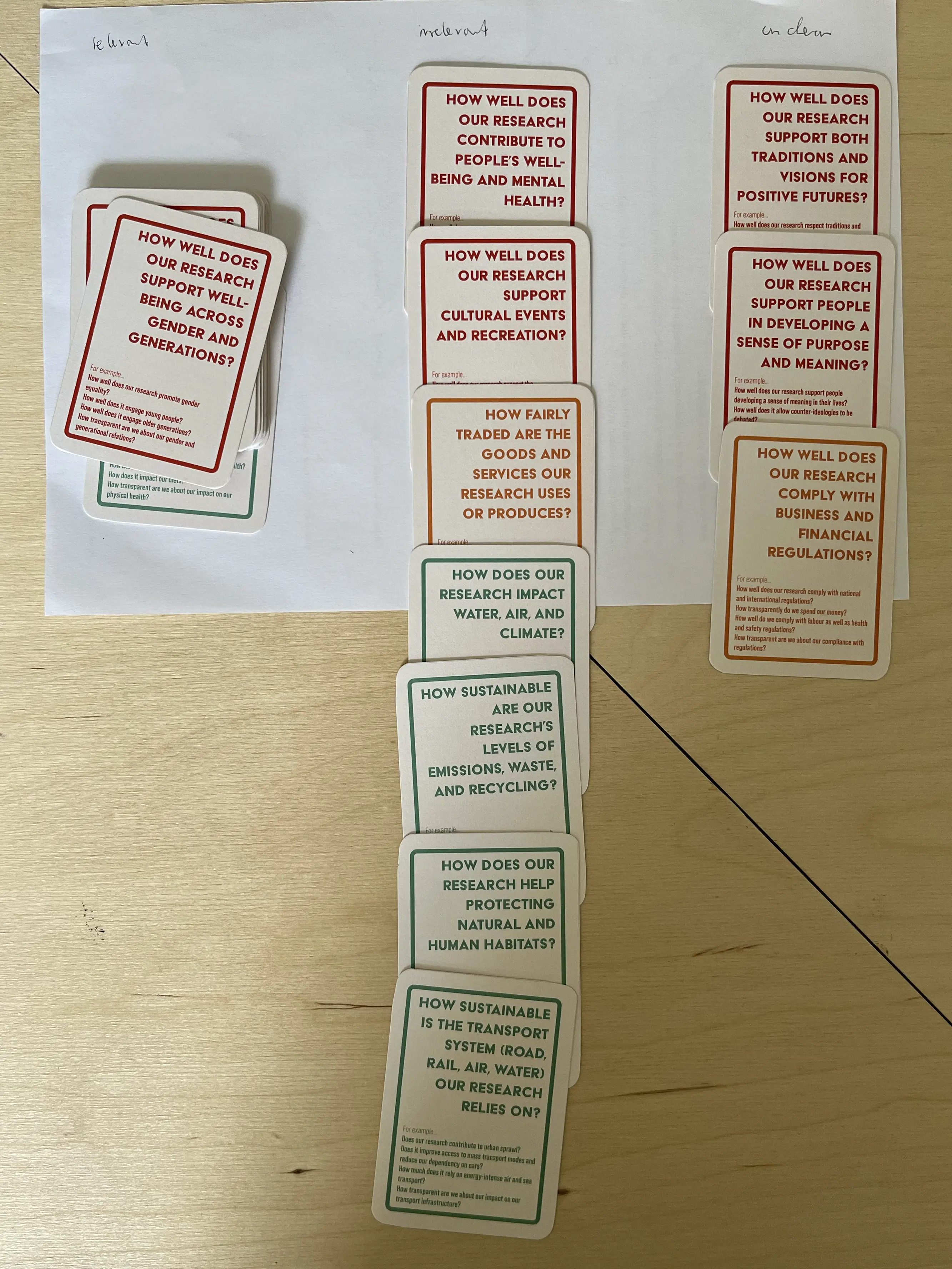
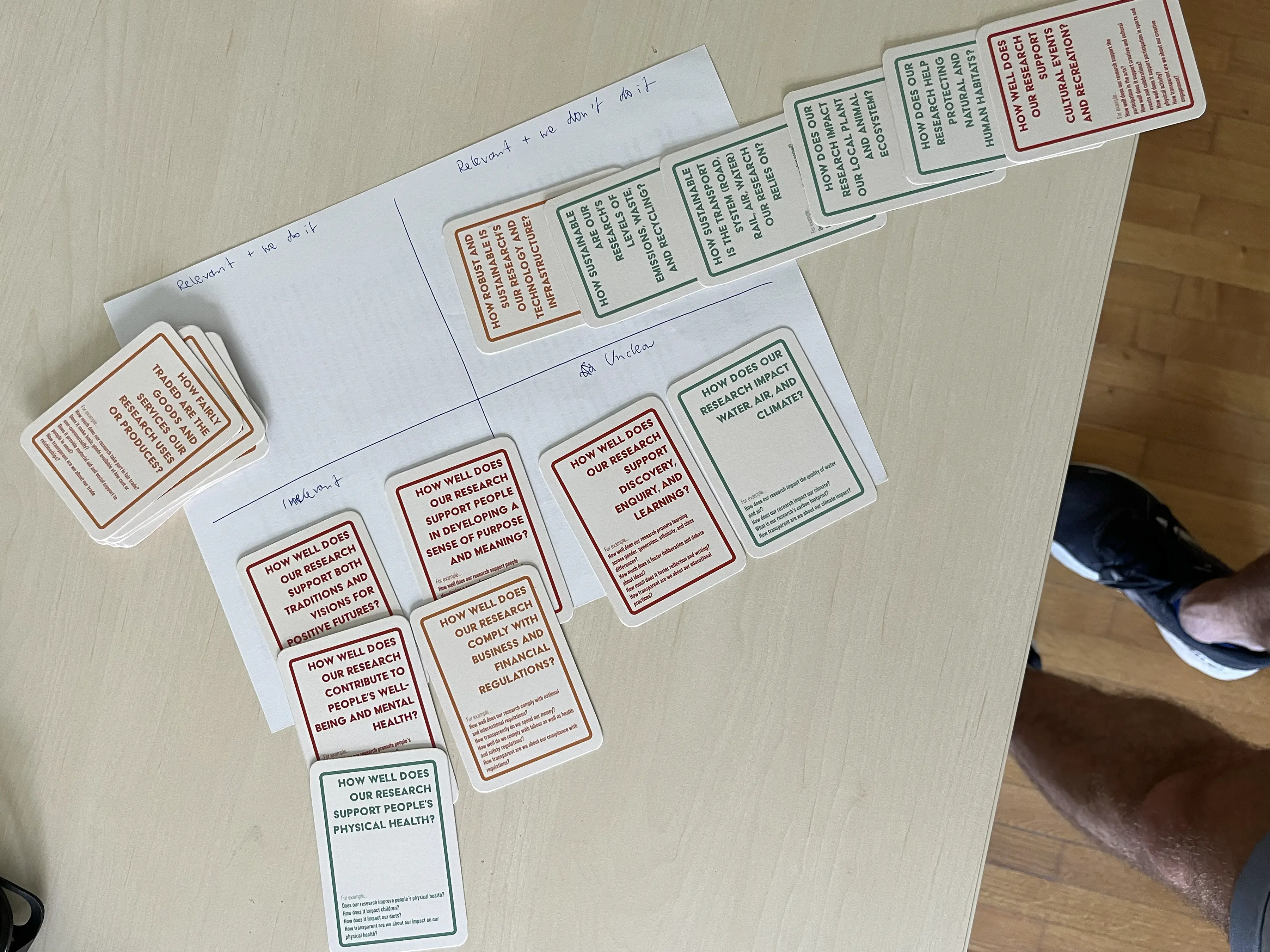
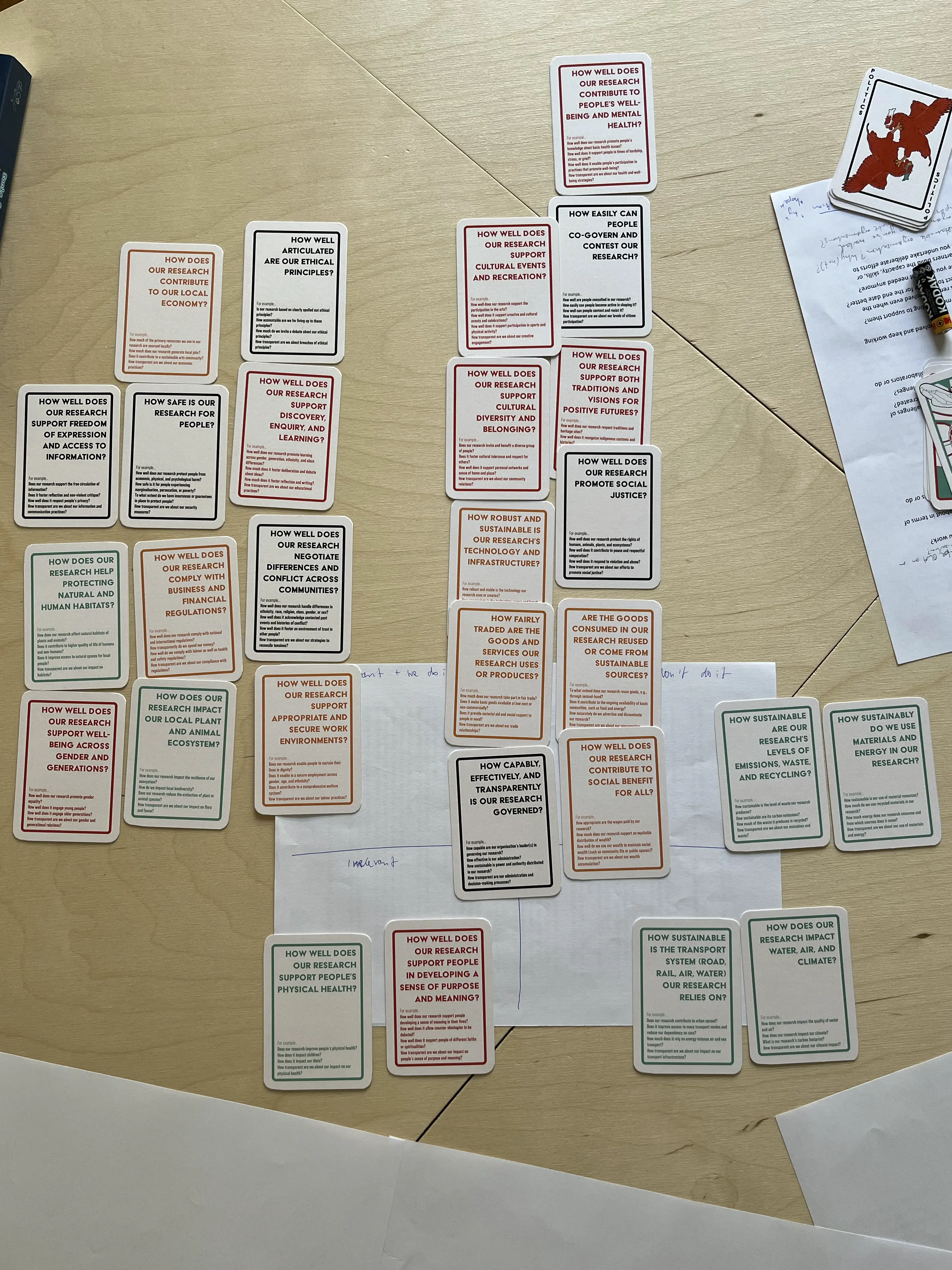
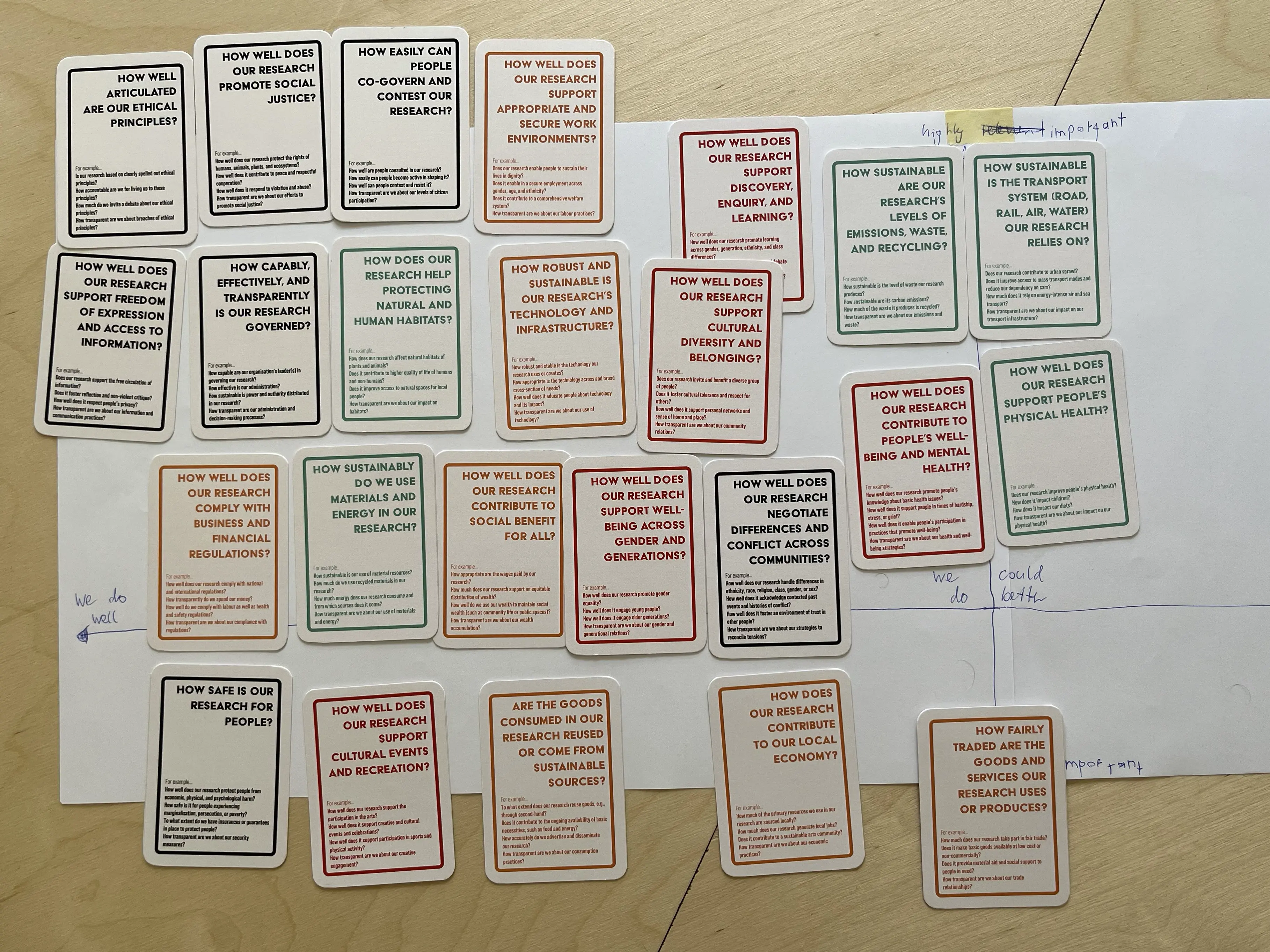
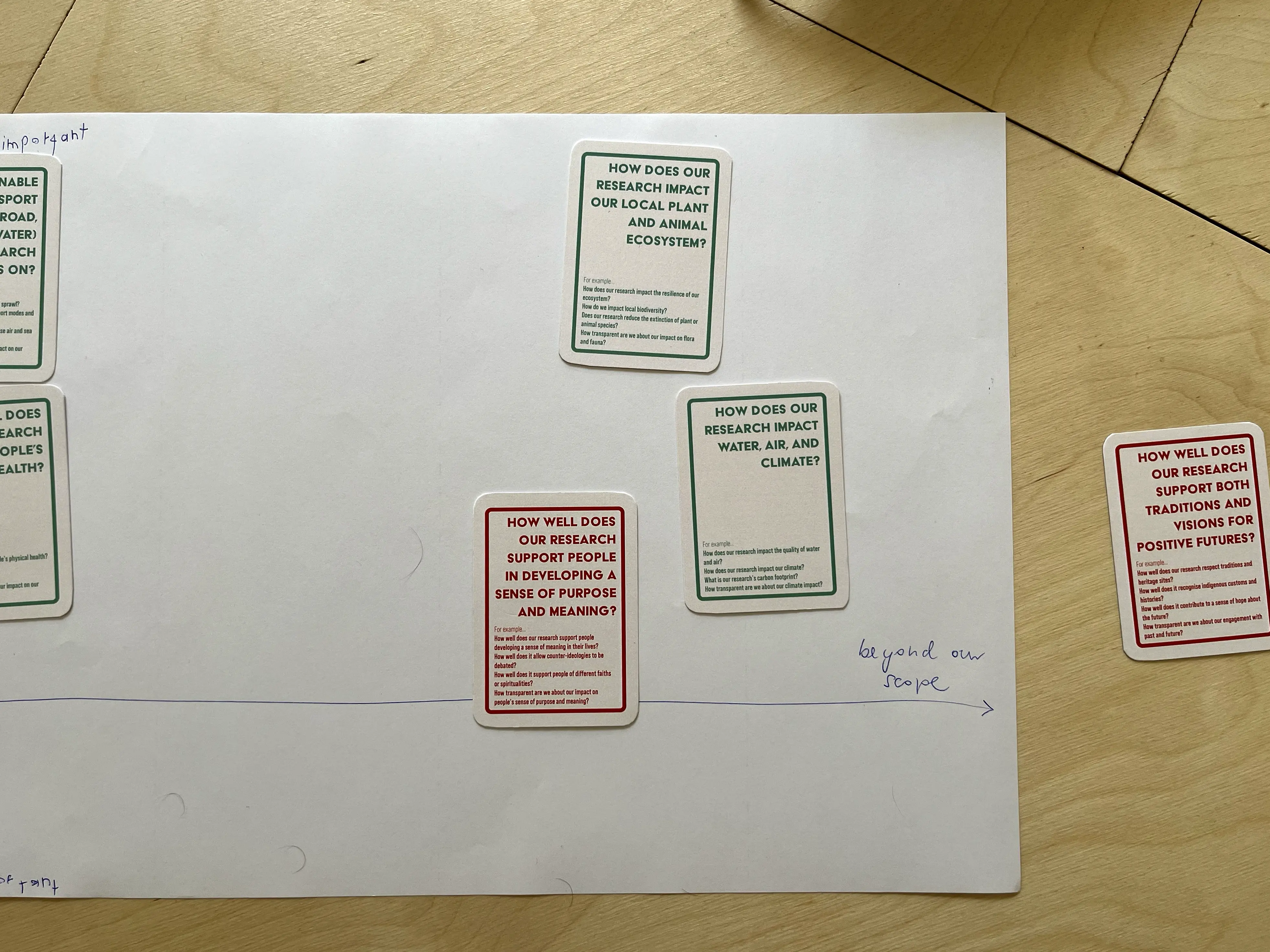
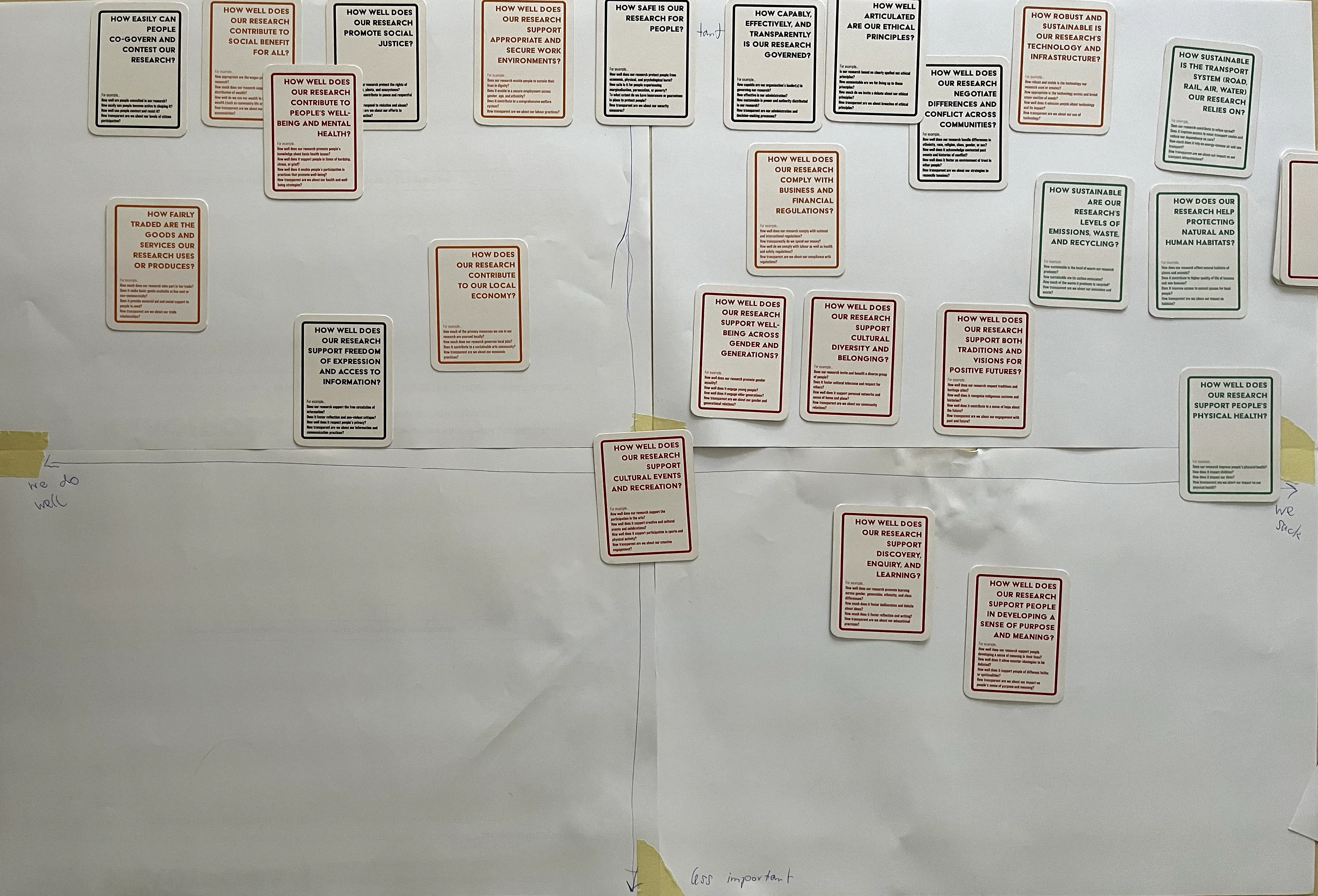
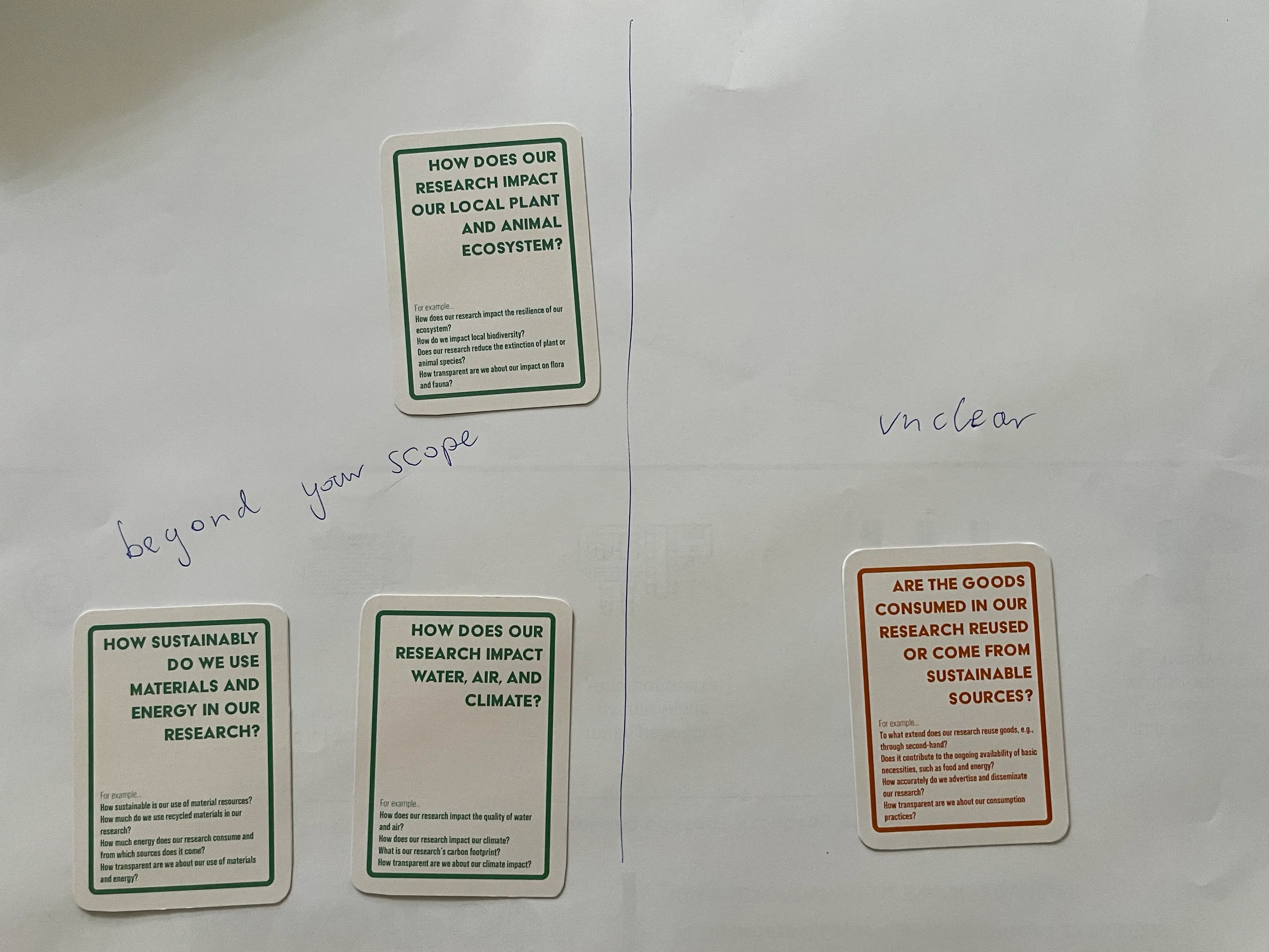



Comentários